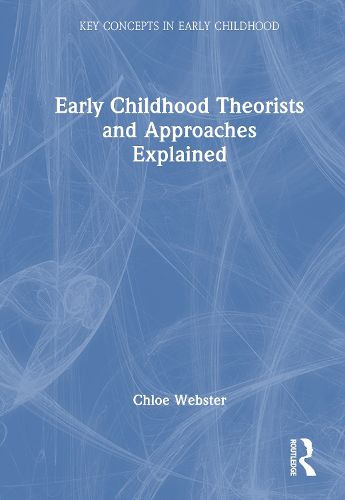Readings Newsletter
Become a Readings Member to make your shopping experience even easier.
Sign in or sign up for free!
You’re not far away from qualifying for FREE standard shipping within Australia
You’ve qualified for FREE standard shipping within Australia
The cart is loading…






This new book provides accessible explanations of the key theories, concepts, and approaches that form the foundations of early childhood education. Unpicking terms like "attachment," "constructivism," and "heuristic play" and introducing both established and less-known contemporary theorists, it is designed to be an easy and comprehensive guide to early childhood theories and approaches, an often complex topic to understand and explore fully.
The book is divided into two parts. The first provides a brief overview of the theorists and approaches, both historical and modern, with explanations, backgrounds, benefits, and criticisms where appropriate. It also defines key terms used in theory and research alongside examples of how they work in practice. Part 2 looks more broadly at how these theories and approaches have been incorporated into settings and present-day policies. The chapters also offer insights from practitioners on how the theories are used successfully and how different countries and cultures adopt and implement particular approaches.
This latest book in the Key Concepts in Early Childhood Series is essential reading for early years practitioners and students who want to support their studies and deepen their understanding, as it makes the pedagogical theories behind the early years curriculum and framework easy to understand and apply.
$9.00 standard shipping within Australia
FREE standard shipping within Australia for orders over $100.00
Express & International shipping calculated at checkout
This new book provides accessible explanations of the key theories, concepts, and approaches that form the foundations of early childhood education. Unpicking terms like "attachment," "constructivism," and "heuristic play" and introducing both established and less-known contemporary theorists, it is designed to be an easy and comprehensive guide to early childhood theories and approaches, an often complex topic to understand and explore fully.
The book is divided into two parts. The first provides a brief overview of the theorists and approaches, both historical and modern, with explanations, backgrounds, benefits, and criticisms where appropriate. It also defines key terms used in theory and research alongside examples of how they work in practice. Part 2 looks more broadly at how these theories and approaches have been incorporated into settings and present-day policies. The chapters also offer insights from practitioners on how the theories are used successfully and how different countries and cultures adopt and implement particular approaches.
This latest book in the Key Concepts in Early Childhood Series is essential reading for early years practitioners and students who want to support their studies and deepen their understanding, as it makes the pedagogical theories behind the early years curriculum and framework easy to understand and apply.